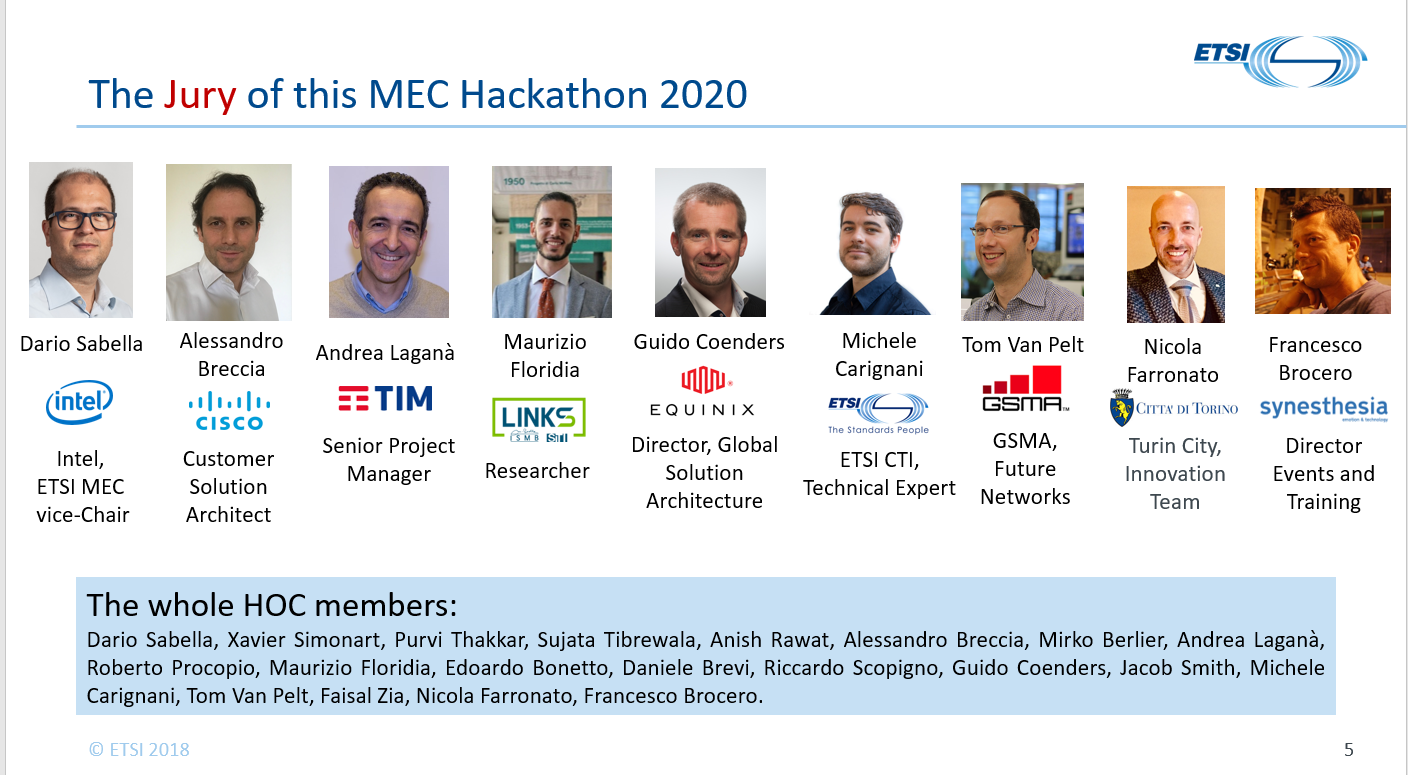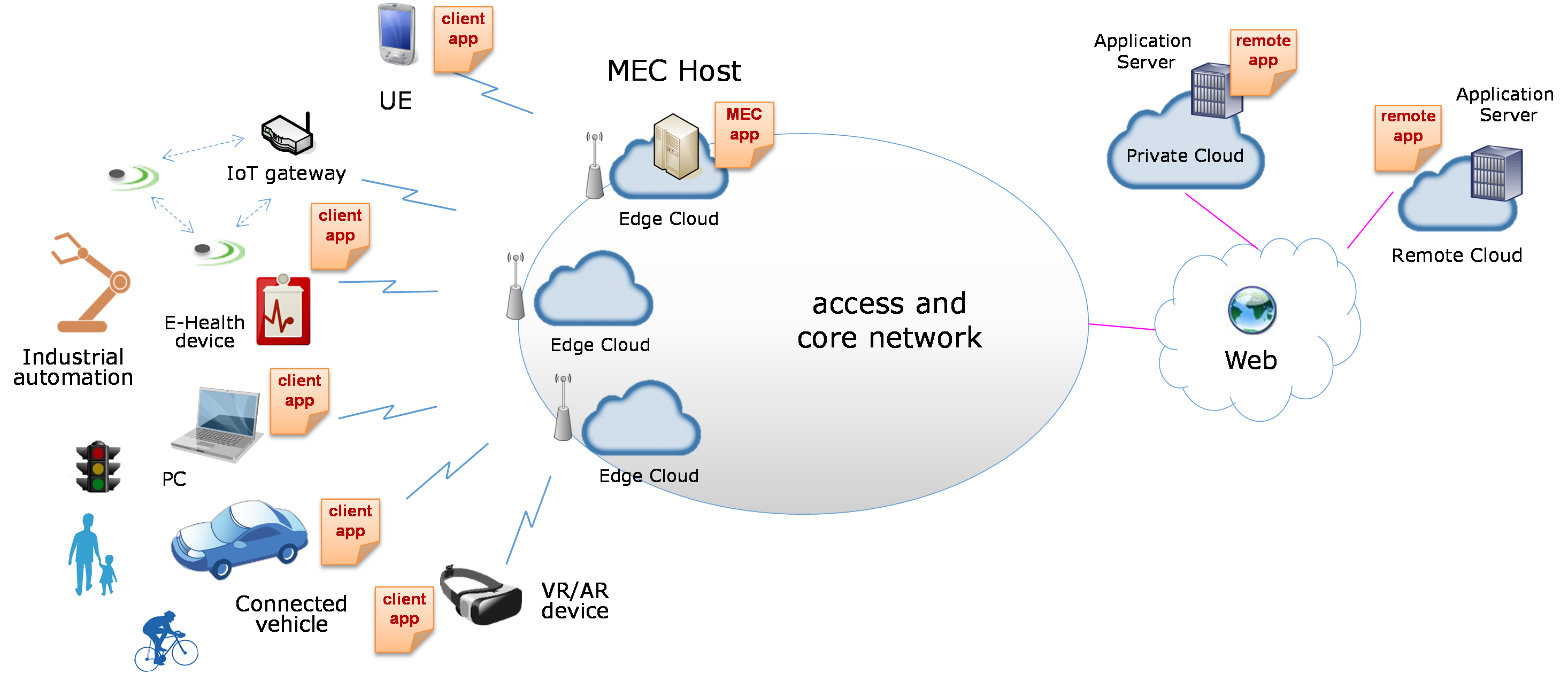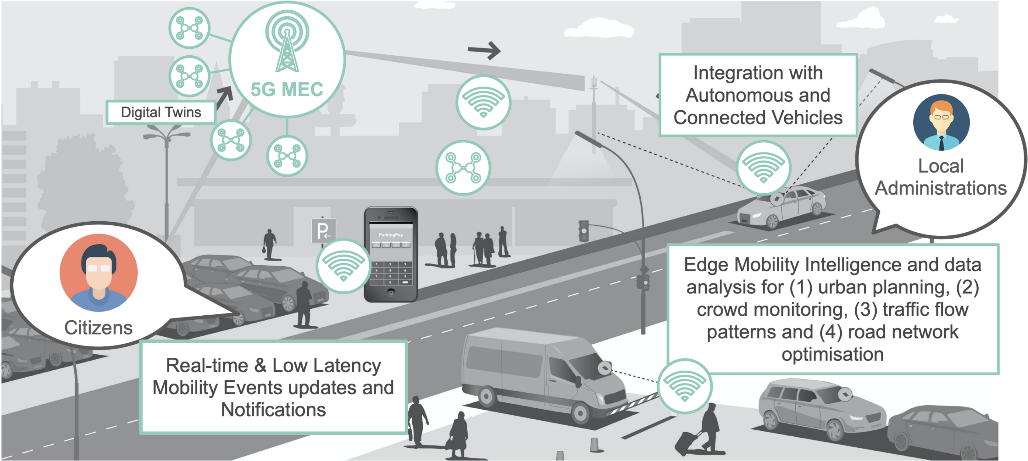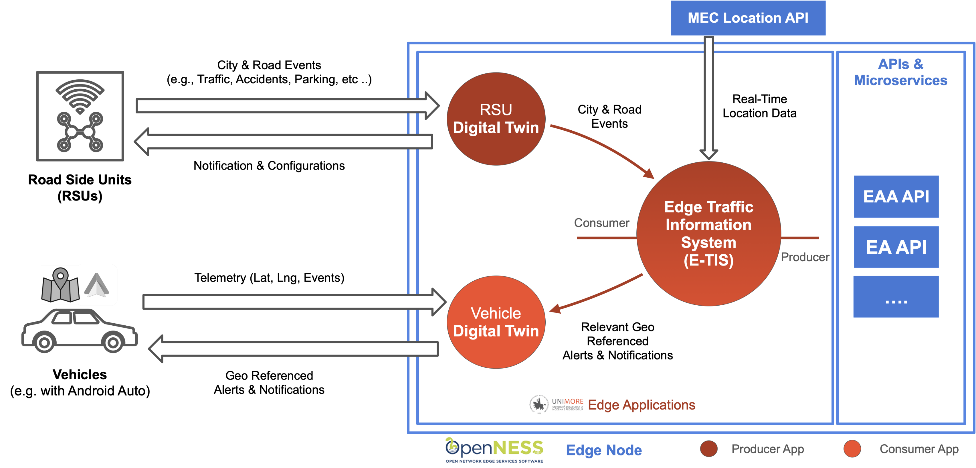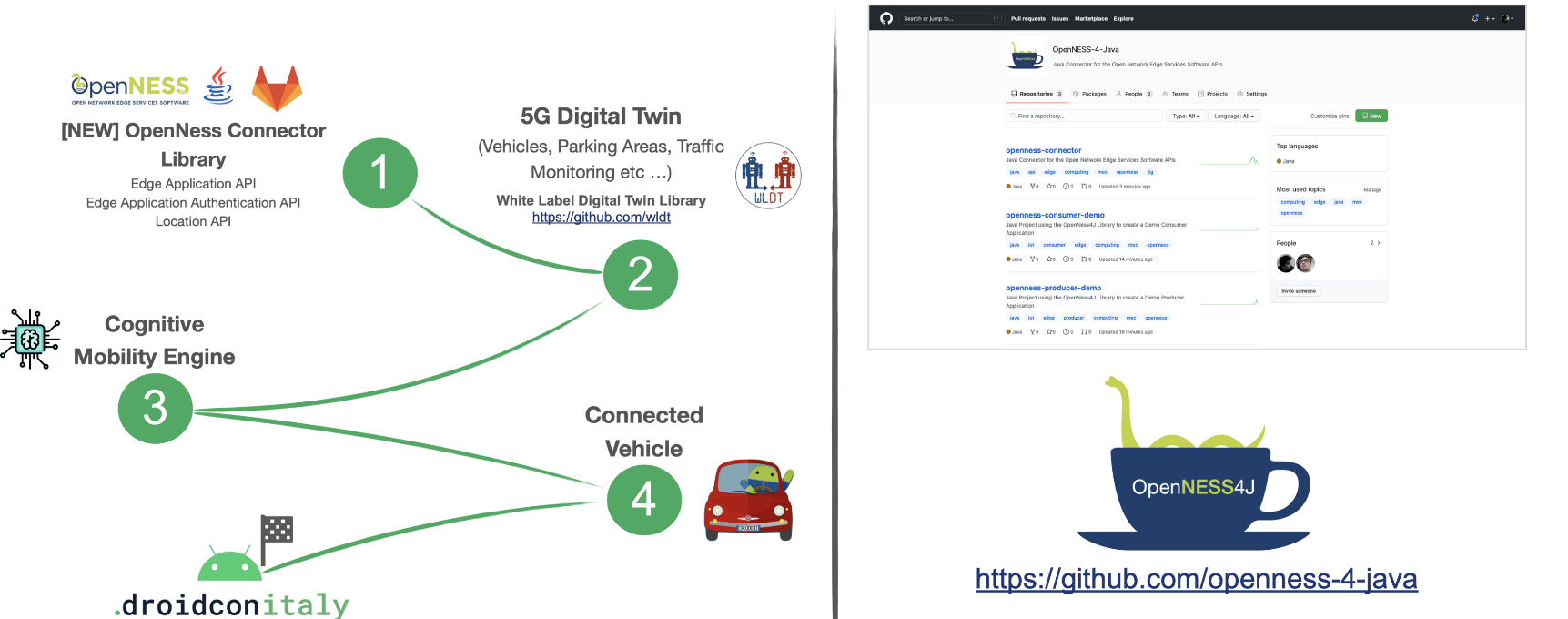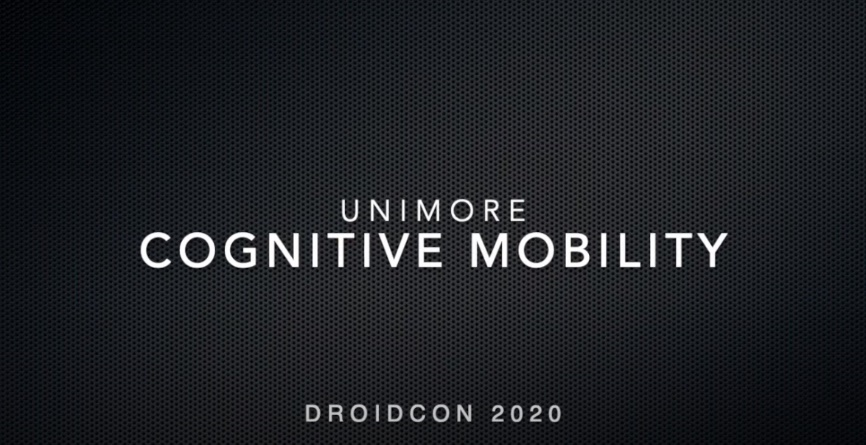Droidcon MEC Hackathon 2020: Difference between revisions
No edit summary |
No edit summary |
||
| (7 intermediate revisions by the same user not shown) | |||
| Line 1: | Line 1: | ||
__NOTOC__ | __NOTOC__ | ||
<br> | |||
<p class="left" style="font-size:26px;"> ←''[[Past_events|Past Hackathons]]''<p> | |||
<br> | |||
[[File:2020-hackathon-banner1.jpg|1200px|center|top|class=img-responsive]] | [[File:2020-hackathon-banner1.jpg|1200px|center|top|class=img-responsive]] | ||
| Line 17: | Line 19: | ||
__TOC__ | __TOC__ | ||
=== Supporting | === Supporting organizations === | ||
The Droidcon MEC Hackathon 2020 was organized by Intel, CISCO, TIM, Equinix and LINKS Foundation, and endorsed by ETSI and with the support of GSMA and Turin City. | The Droidcon MEC Hackathon 2020 was organized by Intel, CISCO, TIM, Equinix and LINKS Foundation, and endorsed by ETSI and with the support of GSMA and Turin City. | ||
[[File:2020-hack-supporters.png|800px|center|top|class=img-responsive]] | [[File:2020-hack-supporters.png|800px|center|top|class=img-responsive]] | ||
| Line 24: | Line 26: | ||
=== Hackathon phases: === | === Hackathon phases: === | ||
* April 2020 – publication of the Call-For-Developers | * April 2020 – publication of the [https://www.etsi.org/images/files/Events/2020/Droidcon_MEC_Hackathon/Droidcon-MEC-Hackathon-2020-CfD.pdf Call-For-Developers] | ||
* June 4th – MEC Webinar | * June 4th – [//mecwiki.etsi.org/images/2020_droidcon_webinar.pdf MEC Webinar] | ||
* June 15th Submission Deadline (extended to 30/06) | * June 15th Submission Deadline (extended to 30/06) | ||
* July 2020 – remote access to MEC servers offered to the admitted MEC Hackathon developers | * July 2020 – remote access to MEC servers offered to the admitted MEC Hackathon developers | ||
| Line 32: | Line 34: | ||
* Event Webinars part 1: https://youtu.be/YqWPad-O_SE | * Event Webinars part 1: https://youtu.be/YqWPad-O_SE | ||
{{#evu:https://www.youtube.com/watch?v=YqWPad-O_SE | |||
|alignment=center | |||
|dimensions="120" | |||
}} | |||
<br> | |||
* Event Webinars part 2: https://youtu.be/gFLfx8Yacck | * Event Webinars part 2: https://youtu.be/gFLfx8Yacck | ||
{{#evu:https://www.youtube.com/watch?v=gFLfx8Yacck | |||
|alignment=center | |||
|dimensions="120" | |||
}} | |||
<br> | |||
=== Jury members === | === Jury members === | ||
| Line 47: | Line 59: | ||
=== Prizegiving day === | === Prizegiving day === | ||
{{#evu:https://www.youtube.com/watch?app=desktop&v=-BbMKRRJvGc&feature=youtu.be | {{#evu:https://www.youtube.com/watch?app=desktop&v=-BbMKRRJvGc&feature=youtu.be | ||
|alignment= | |alignment=center | ||
|dimensions="120" | |dimensions="120" | ||
}} | }} | ||
=== Awarded project === | === Awarded project === | ||
The MEC Hackathon winner, UniMore, showcased a project on Cognitive mobility at the Edge, an automotive application solution exploiting features and services provided by the 5G MEC architecture (including a MEC Location API) in order to deliver low-latency location-based event notifications about traffic, congestion forecast, and mobility patterns. | The MEC Hackathon winner, UniMore, showcased a project on Cognitive mobility at the Edge, an automotive application solution exploiting features and services provided by the 5G MEC architecture (including a MEC Location API) in order to deliver low-latency location-based event notifications about traffic, congestion forecast, and mobility patterns. | ||
[[File:2020-hack-award2.png|800px|center|top|class=img-responsive]] | [[File:2020-hack-award2.png|800px|center|top|class=img-responsive]] | ||
<br> | |||
[[File:2020-hack-award3.png|800px|center|top|class=img-responsive]] | [[File:2020-hack-award3.png|800px|center|top|class=img-responsive]] | ||
<br> | <br> | ||
| Line 60: | Line 74: | ||
See the video here: | See the video here: | ||
{{#evu:https://www.youtube.com/watch?v=3sy8gz_XTvA | {{#evu:https://www.youtube.com/watch?v=3sy8gz_XTvA | ||
|alignment= | |alignment=center | ||
|dimensions="120" | |dimensions="120" | ||
}} | }} | ||
| Line 66: | Line 80: | ||
As a part of the final software prototype, the UniMore team also released the Openness Connector java library on Github (https://github.com/openness-4-java) to ease the life of developers willing to interact with the MEC API provided by the Openness platform. | As a part of the final software prototype, the UniMore team also released the Openness Connector java library on Github (https://github.com/openness-4-java) to ease the life of developers willing to interact with the MEC API provided by the Openness platform. | ||
<br> | <br> | ||
[[File:2020-hack-award4.png | [[File:2020-hack-award4.png|center|top|class=img-responsive]] | ||
<br> | |||
<br> | <br> | ||
=== Winner team === | === Winner team === | ||
The UniMore team is composed by very experienced Droidcon Hackathon developers and researchers at the Department of Sciences and Methods for Engineering of the University of Modena and Reggio Emilia. | The UniMore team is composed by very experienced Droidcon Hackathon developers and researchers at the Department of Sciences and Methods for Engineering of the University of Modena and Reggio Emilia. | ||
Latest revision as of 17:43, 26 March 2024
Organization
Details
The successful last edition of MEC Hackathons endorsed by ETSI took place on 25 to 26 November and was hosted by Droidcon Italy 2020 as a fully virtual event. The competition was open for developers to test their applications with ETSI MEC APIs (Application Programming Interfaces) in a variety of use cases.
The organizing committee received a total of 14 submissions, including several topics, from Augmented Reality for Construction Sector, to consumer, media and entertainment application, to automotive services.
Admitted teams were offered remote access to MEC servers and software platforms to develop mobile applications for advanced services in MEC-enabled 5G networks, using ETSI MEC technologies.
They were also required to onboard their applications in real-life MEC systems and connect with the MEC APIs to receive simulated in-network data.
Supporting organizations
The Droidcon MEC Hackathon 2020 was organized by Intel, CISCO, TIM, Equinix and LINKS Foundation, and endorsed by ETSI and with the support of GSMA and Turin City.
Hackathon phases:
- April 2020 – publication of the Call-For-Developers
- June 4th – MEC Webinar
- June 15th Submission Deadline (extended to 30/06)
- July 2020 – remote access to MEC servers offered to the admitted MEC Hackathon developers
- July-November – actual WORK
- 25-26 Nov – FINAL DAYS of the Hackathon!
- Event Webinars part 1: https://youtu.be/YqWPad-O_SE
- Event Webinars part 2: https://youtu.be/gFLfx8Yacck
Jury members
Technical challenge
Developers’ teams at the Hackathon were tasked to develop Android applications for services in MEC-enabled 5G networks, running on OpenNESS platform and using ETSI MEC technologies.
Awards
Prizegiving day
Awarded project
The MEC Hackathon winner, UniMore, showcased a project on Cognitive mobility at the Edge, an automotive application solution exploiting features and services provided by the 5G MEC architecture (including a MEC Location API) in order to deliver low-latency location-based event notifications about traffic, congestion forecast, and mobility patterns.
See the video here:
As a part of the final software prototype, the UniMore team also released the Openness Connector java library on Github (https://github.com/openness-4-java) to ease the life of developers willing to interact with the MEC API provided by the Openness platform.
Winner team
The UniMore team is composed by very experienced Droidcon Hackathon developers and researchers at the Department of Sciences and Methods for Engineering of the University of Modena and Reggio Emilia.
Among the other prizes, the Hackathon winner was offered the possibility to participate to the Smart Road project (a consortium of partners, from car makers, network operators, universities and the City of Turin), with the aim of proposing their developed solution as possible implementation for testing activities in the Turin urban environment. In this perspective, the UniMore Team continued the implementation activities related to their V2X applications scenarios.



